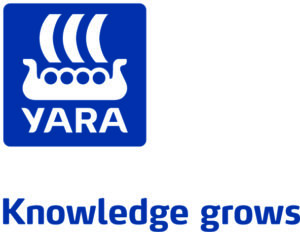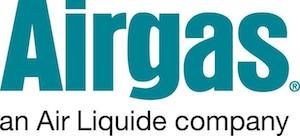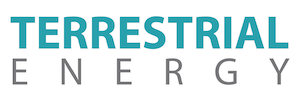NH3 Fuel Association Announces Charter Sponsors
By Stephen H. Crolius on September 28, 2017
The NH3 Fuel Association (NH3FA) has released the names of the organization’s charter group of sponsors. The common thread that unites the six companies? A conviction that ammonia energy represents a significant opportunity for their businesses. The sponsoring companies are Yara, Nel Hydrogen, Airgas, Haldor Topsoe, Casale, and Terrestrial Energy.
YARA—Platinum Sponsor
Yara International is the world’s largest producer of ammonia and nitrate fertilizers. It was spun out of Norsk Hydro in 2004 and remains headquartered in Norway. The company has a strong commitment to the social aspects of its mission, including development of processes and products that reduce greenhouse gas emissions.
Commenting on the decision to sponsor the NH3FA, Rob Stevens, Vice President, Technology Scouting within the company’s Corporate Innovation unit, said, “Yara is very interested in the potential of ammonia as an energy carrier as it not only would mean we have reached the production of green fertilizers based upon renewable hydrogen, but also can influence the rest of the agronomy related greenhouse gases through the transport of our own products and the logistics at a farm. A new business model will emerge.”
“We are extremely pleased to have the support of these forward-thinking companies,” Norm Olson, President of the NH3 Fuel Association said earlier this week. “The ammonia energy movement has reached a point where explosive growth could occur if interested stakeholders unite behind a common effort. The NH3 Fuel Association intends to promote cooperative action on behalf of ammonia energy.”
NEL HYDROGEN—Silver Sponsor
Like Yara, Nel Hydrogen is based in Norway and also started as a business within Norsk Hydro. In Nel’s case, the unit came under the corporate umbrella of the Norwegian oil company Statoil after Norsk Hydro’s oil and gas business merged with Statoil in 2007. Statoil spun Nel off in 2011. Nel’s long-standing focus is the production of hydrogen via the electrolysis of water. Over the last six years, Nel has made acquisitions and taken steps to become an integrated provider whose technologies can “produce, store and distribute hydrogen from renewable energy.”
In discussing Nel’s decision to support the NH3FA, Steve Szymanski, Market Development Manager at Nel’s U.S. subsidiary (known as Proton OnSite before being acquired by Nel in 2017), said that Nel “is very interested in the potential of ammonia as an energy carrier because it represents a tremendous market opportunity for renewable hydrogen production from electrolysis.” He continued, “Our company was founded on the vision of ammonia production from renewably sourced hydrogen, and we recognize the value of using ammonia as a carbon-free hydrogen carrier for large scale energy storage. We need a portfolio of grid balancing solutions to manage increasing levels of renewable penetration, and green ammonia production via electrolysis represents an important tool to accomplish that.”
The NH3FA was founded in 2004 and has hosted a global conference every year since. At the 2016 conference, the Board of Directors announced the formation of the Global Ammonia Energy Federation (GAEF).
AIRGAS—Silver Sponsor
Airgas, the largest distributor of ammonia for industrial applications in the United States, was acquired by Air Liquide in 2016. As described in a recent Ammonia Energy post, Air Liquide intends to play a significant role in the emerging hydrogen economy. According to the company’s Hydrogen Energy Web page, it regards hydrogen as “a solution to meet the challenges of clean transportation: reduction of greenhouse gases, of pollution in cities, and of dependency on fossil fuels.” The company’s stated intention is to seek “mastery of the entire hydrogen chain (production, storage, and distribution).”
Joe Ennes, Airgas’s Western Regional Manager, said that the company is “very interested in the potential of ammonia as an energy carrier” because it “represents an environmentally friendly fuel solution and is consistent with our strategy of improving air quality though the use of ammonia.”
The initial mission of the GAEF is to provide a forum where prominent ammonia energy proponents from different countries can consult on opportunities for advocacy. Hans Vrijenhoef, Managing Director of Proton Ventures in the Netherlands and the convener of the Power-to-Ammonia Conference held in Rotterdam in May 2017, is a member of the GAEF Advisory Board. John Mott, the catalyst for the recent formation of the NH3FA chapter in Australia, is another. Still other members include Bill David, Professor of Materials Chemistry at the University of Oxford in the United Kingdom, and Ken-ichi Aika, Professor Emeritus of the Tokyo Institute of Technology.
HALDOR TOPSOE—Silver Sponsor
Haldor Topsoe of Denmark is a chemical technology and engineering company with a substantial presence in the ammonia and hydrogen industries. The company was founded in 1940 with the mission of developing catalysts for industrial applications. It has built a portfolio of proprietary technologies that are leaders in their fields. Haldor Topsoe today provides products including catalysts and equipment such as reactors and burners; and a full suite of engineering, procurement, construction management, and plant support services. The company devotes 10% of its annual revenues to research and development.
The companies are part of a select group that the NH3FA approached to form the organization’s inaugural class of sponsors. Olson said that the NH3FA wanted to keep the sponsor group small at first since the organization’s primary need is for consultation with industry to develop priorities for ammonia energy advocacy. That consultation is already underway in a process that includes GAEF Advisory Board members in addition to representatives from sponsor companies.
CASALE—Silver Sponsor
Casale SA of Switzerland is an engineering, procurement, and construction management company that undertakes plant revamping and new plant construction for facilities that produce syngas, methanol, ammonia, and related nitrogenous compounds. According to its Web site, the company is also “active in the field of hydrogen production processes through pressurized water electrolysers of advanced type.” Casale was founded in 1921 with the purpose of licensing an improved ammonia synthesis process that had been developed by Luigi Casale.
Casale sees significant potential in ammonia energy. According to Rob Stockwell, Casale’s North American Agent, “ammonia is a great way to move hydrogen around.” He anticipates many opportunities for technology development as ammonia becomes a hydrogen carrier. “Ammonia is not set up with an extensive distribution network, certainly compared with natural gas. We wonder what could be done with distributed production via small-scale plants. Of course some breakthroughs will be needed for a 50 or 100 ton-per-day plant to become economical.”
“Next year we anticipate bringing a larger group of sponsors on board,” Olson said. “We will be striving to attain critical mass that will allow us to start the advocacy process in selected countries.”
TERRESTRIAL ENERGY—Sponsor
Terrestrial Energy is a Canadian company that has been working since its inception in 2013 on an innovative nuclear reactor design. The company was profiled earlier this year in Ammonia Energy.
According to John Kutsch, Vice President of Business Development at Terrestrial Energy USA Ltd., the company’s proprietary Integral Molten Salt Reactor (IMSR) “generates carbon-free, base-load heat and electricity that can produce hydrogen using high-temperature steam electrolysis. This will enable production of ammonia more cleanly and cheaply than deriving it from natural gas.”





